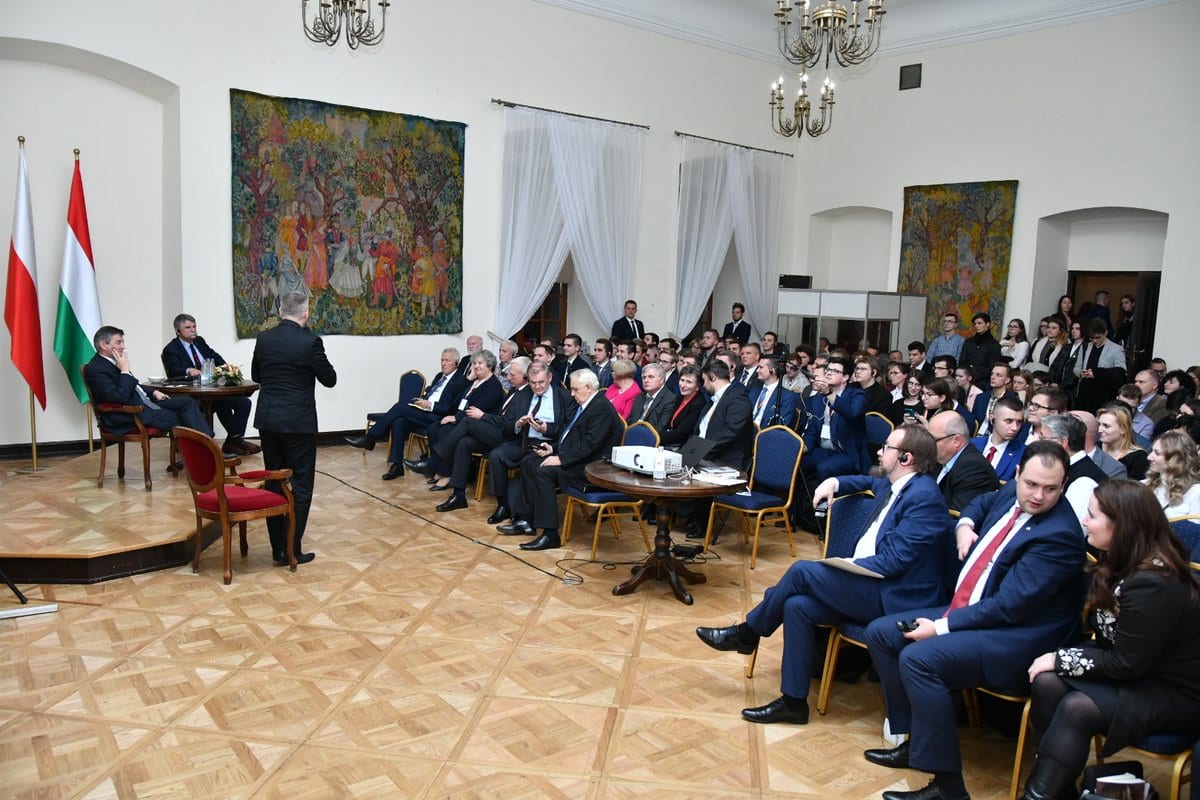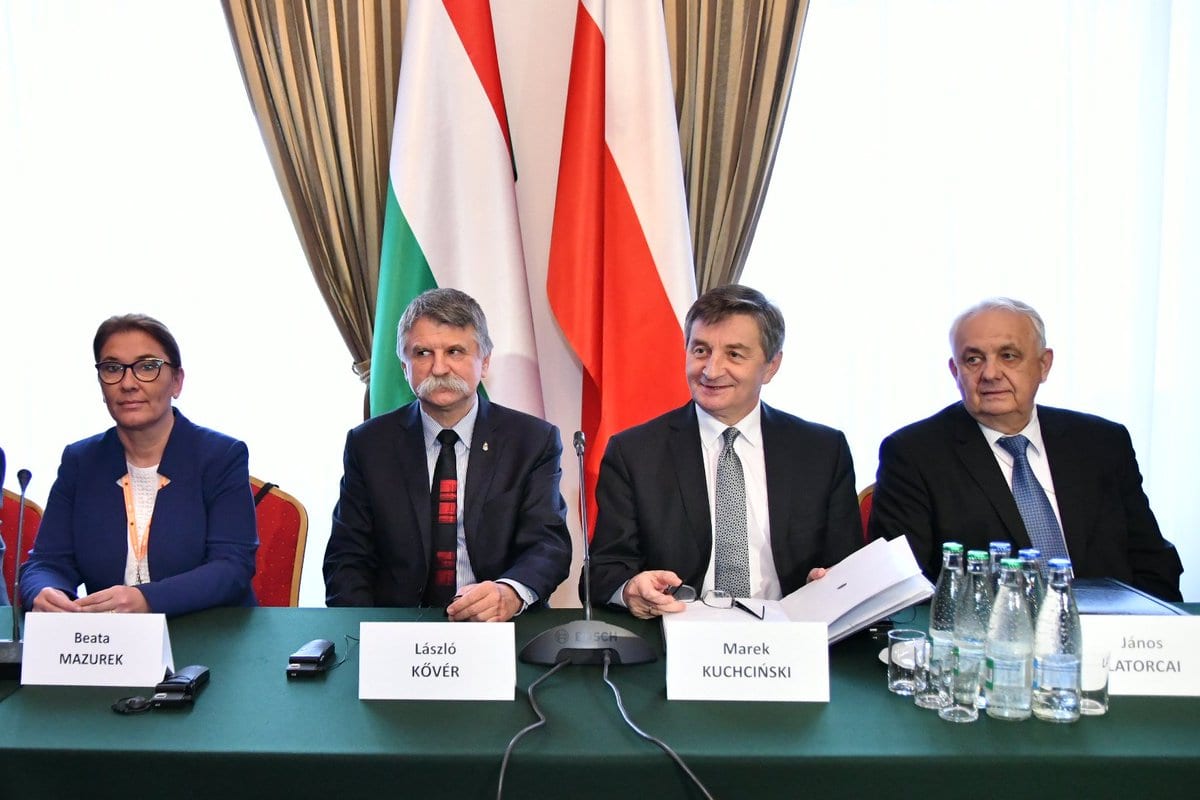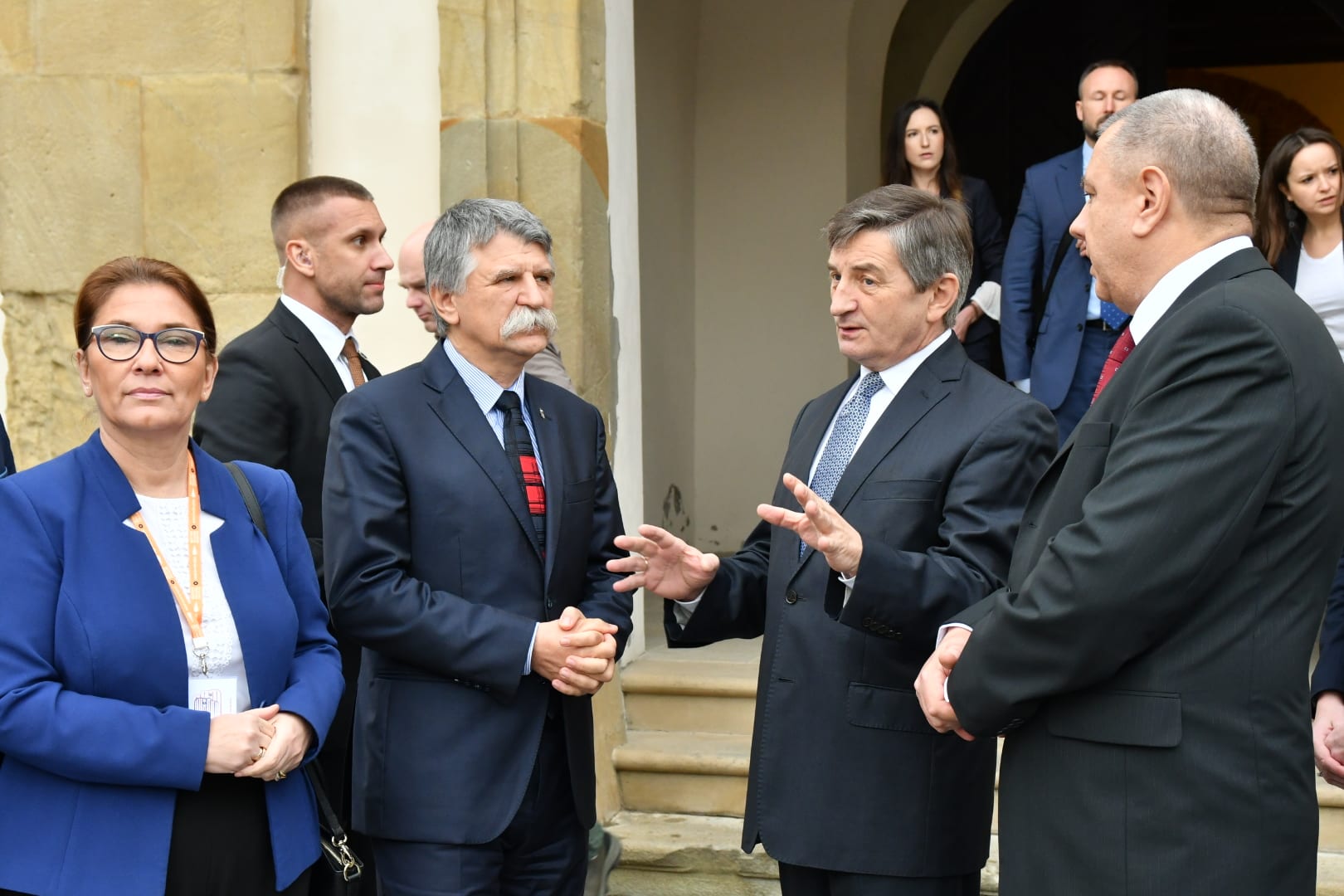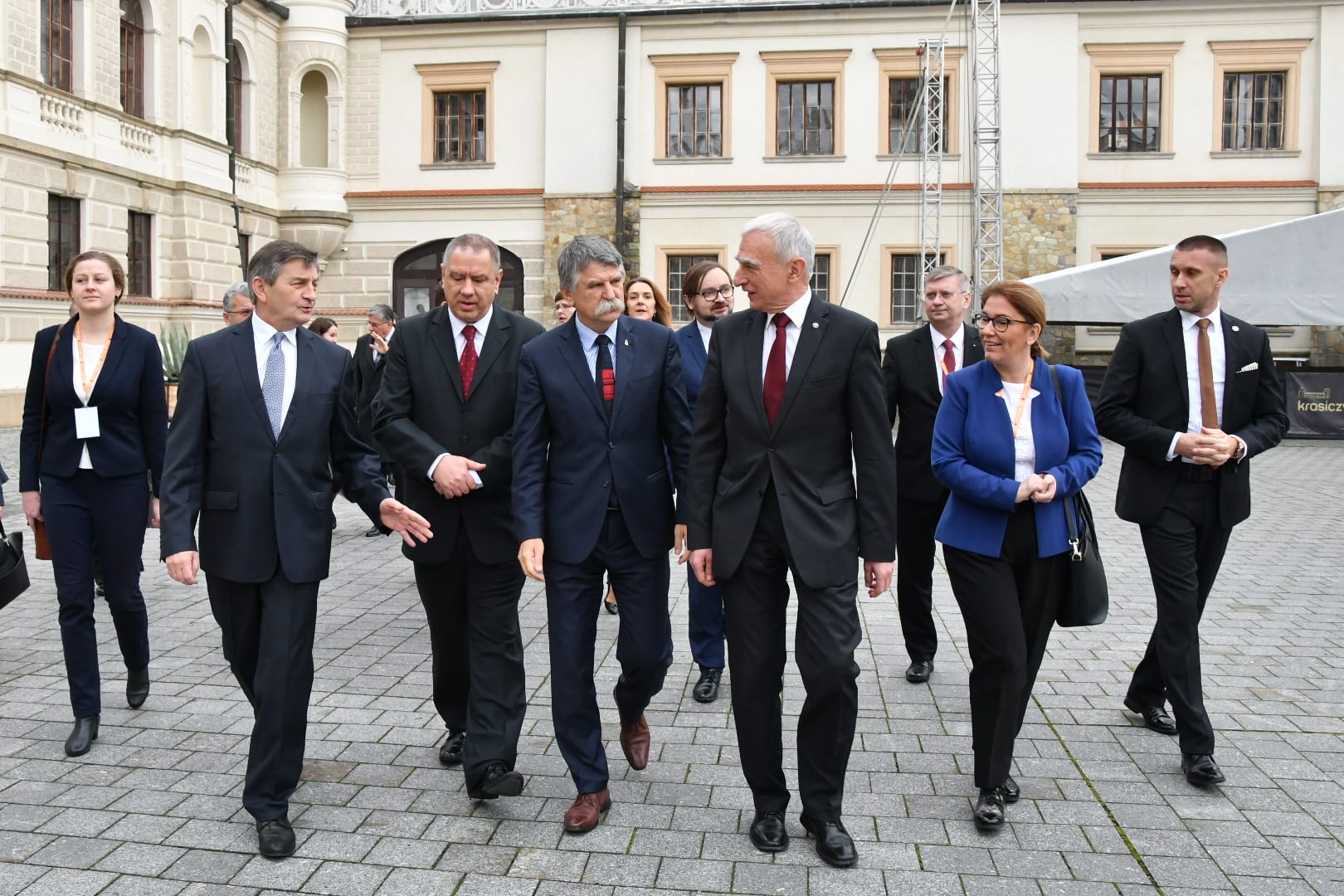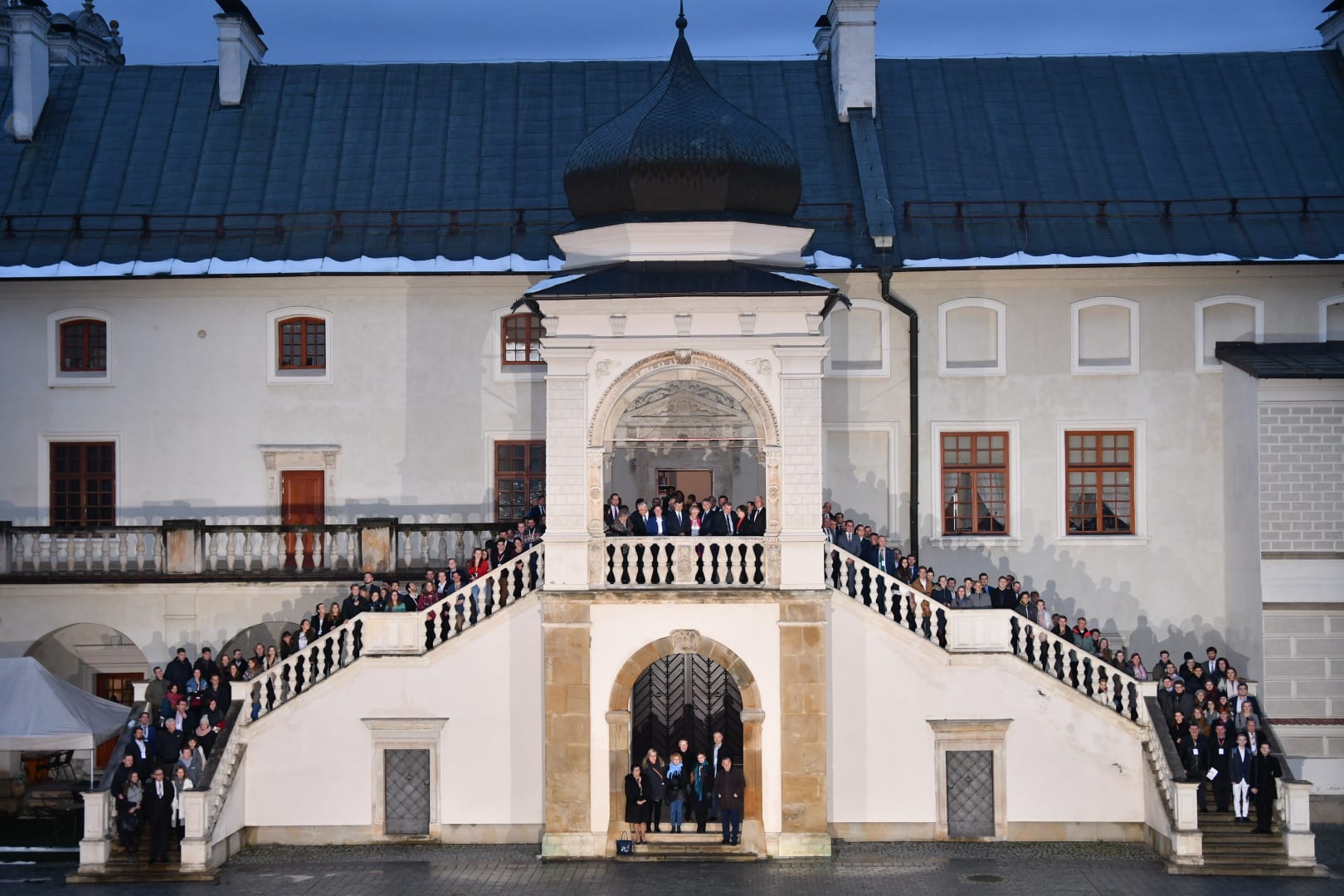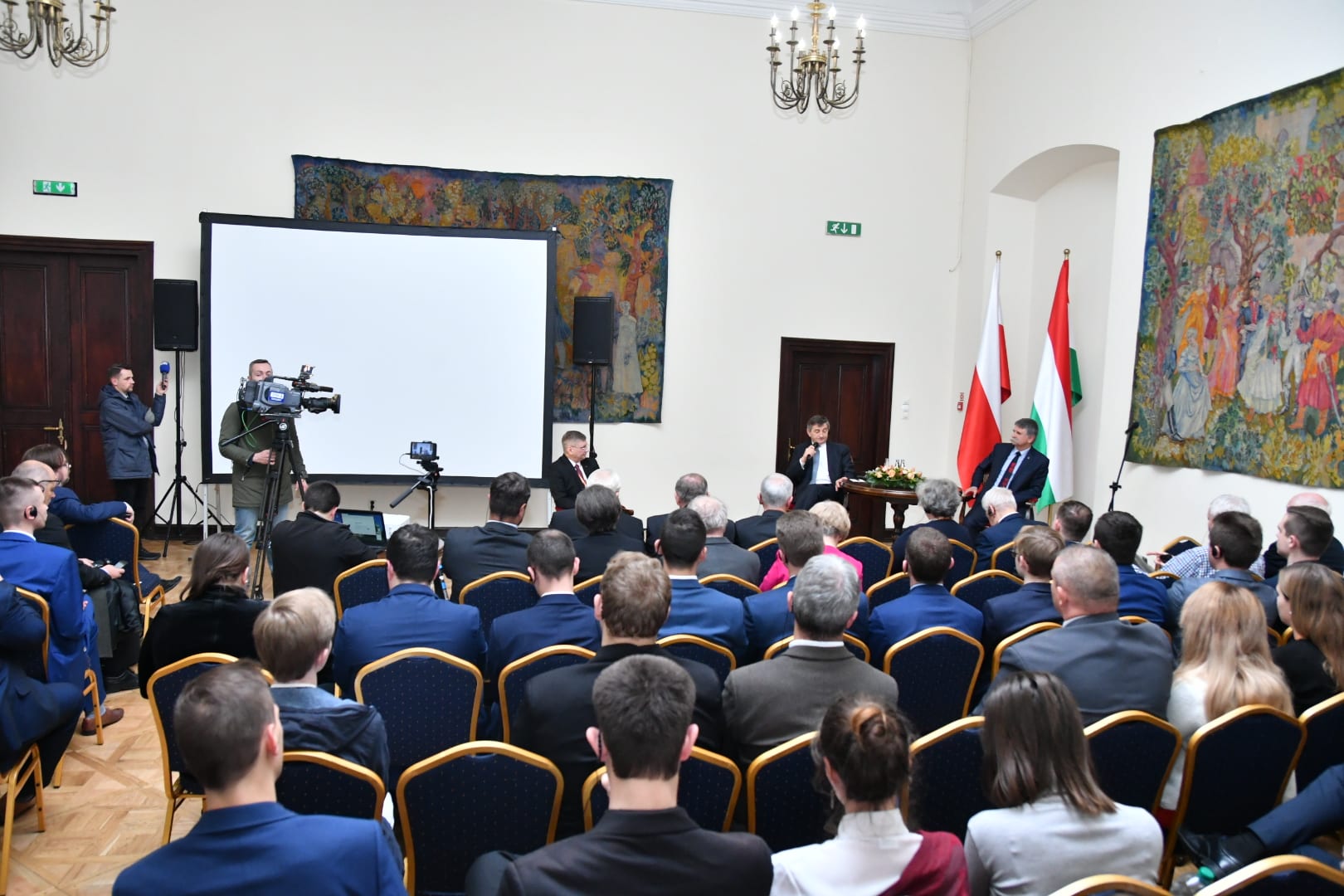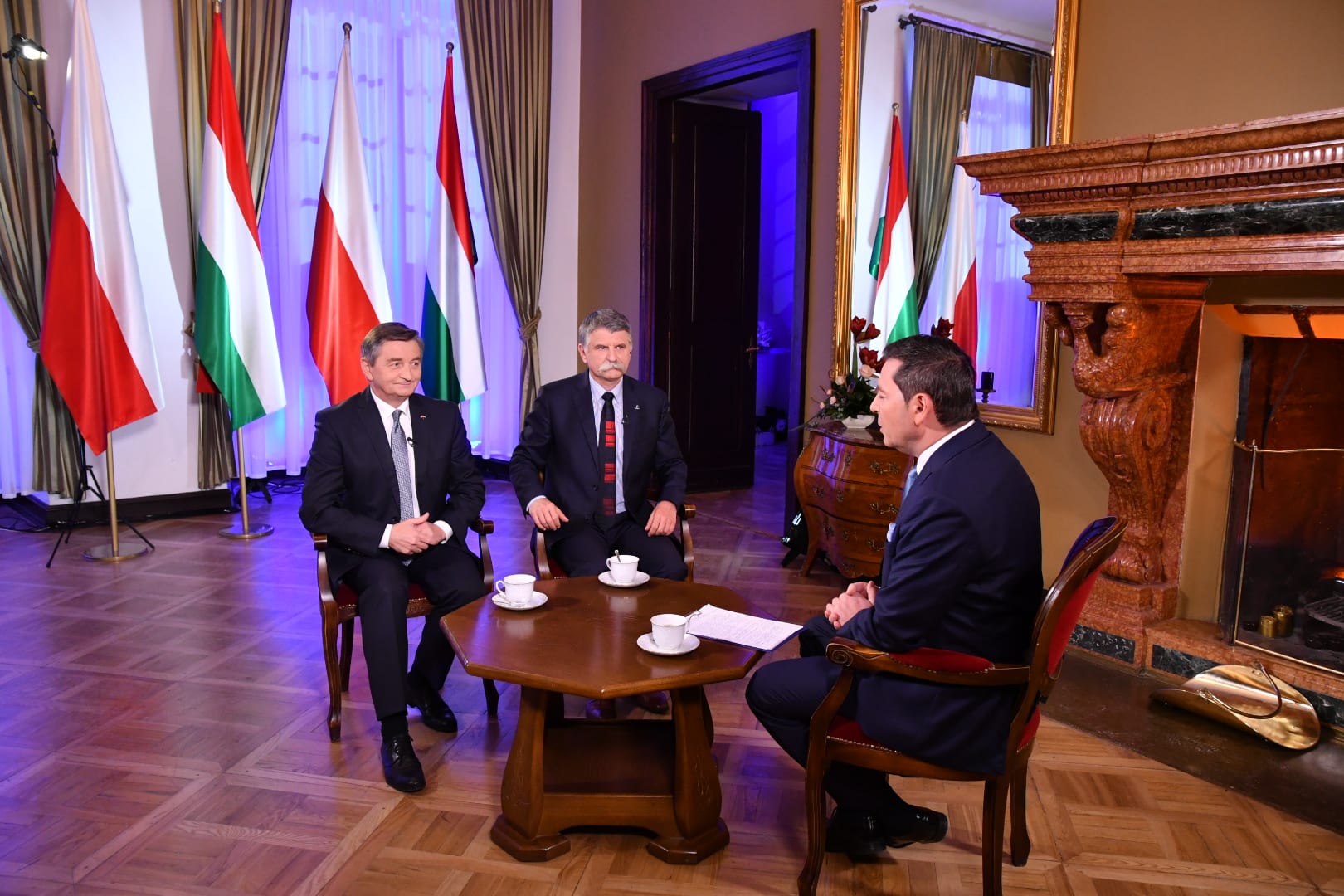On Saturday, November 24, in Krasiczyn, Speaker of the Sejm Marek Kuchcinski met with Speaker of the Hungarian National Assembly László Kövér. The talks concerned cooperation between the two parliaments. They also discussed joint activities of the Visegrad Group within the European Union. - The tradition of Polish-Hungarian cooperation dates back many centuries. Today we face challenges that further encourage us to join forces," said Marek Kuchciński opening the meeting.
The Speaker of the Sejm also stressed the need to seek new forms for strengthening cooperation. Chairman Kövér agreed, according to whom both parliamentary diplomacy and cooperation between Polish-Hungarian institutions are important complements to government activities in nurturing mutual relations. - Parliaments and institutions that promote Polish-Hungarian culture can, in this aspect, act as a background for the government, which will indicate what projects are worth undertaking in order to build the future of Polish-Hungarian friendship and promote it on the EU forum as a model for European cooperation, László Kövér assessed.
Prof. Maciej Szymanowski, director of the Waclaw Felczak Institute for Polish-Hungarian Cooperation and advisor to the Speaker of the Sejm, and Karol Biernacki, president of the Waclaw Felczak Foundation, which operates in Hungary, presented projects for joint initiatives promoting the development of educational and cultural cooperation. As Prof. Szymanowski pointed out, the purpose of the initiatives is to show that there are many moments in our common history that demonstrate how strong the ties between the two countries are.
The institutes plan to take steps to involve the media in Poland and Hungary in the promotion of Polish-Hungarian Friendship Day. They also discussed the idea of jointly developing materials for teaching history in schools in Poland and Hungary, which would highlight the importance of the thousand-year friendship between the countries. They also pledged to support the teaching of Polish in Hungary and Hungarian in Poland at the secondary and higher school levels, as well as to launch translation programs to double the published translations of books and monographic studies on Poland and Hungary.
Another important initiative will be the development of a concept for a joint exhibition showing the early development of parliamentarism in Poland and Hungary, to be exhibited at the European forum. As Sándor Őze, dean of the Department of History at the Catholic University in Budapest, pointed out, Polish and Hungarian parliamentary history contain many similarities. - The Golden Bull of Andrew II, issued in 1222, can be read as the beginning of the formation of parliamentarism in Hungary. It contains provisions limiting royal power similar to privileges issued in Poland, which became the basis for the formation of noble parliamentarism, the Hungarian historian explained. As he added, Poles and Hungarians have also always been united by the idea of fighting for freedom and independence, as exemplified by the figures of General Jozef Bem and Tadeusz Kosciuszko, who participated in the battles that shaped the independence of the United States. President of the Waclaw Felczak Foundation in Hungary, Karol Biernacki also announced the opening in Budapest of an exhibition dedicated to the Polish mathematicians who broke the "Enigma" cipher. The exhibition will be held under the honorary patronage of the Polish ambassador to Hungary, Jerzy Snopek.
The talks of the Polish-Hungarian delegation were followed by a meeting between Marek Kuchcinski and László Kövér and the participants of the 1st Polish-Hungarian School of Leaders. The undertaking was organized by the Waclaw Felczak Institute, and was attended by nearly 200 young people, mainly students from both countries. Marshal Kuchcinski stressed that the school of leaders is a great opportunity to talk with young people about common values and the friendship that has lasted for many centuries, uniting our nations. - If we look at our common history, there is no generation in which important events related to independence struggles with the joint participation of prominent Hungarians and Poles have not occurred. This strengthens in us the sense of historical community and gives us hope for positive development of cooperation in the future," he argued.
In turn, László Kövér said that Polish-Hungarian bilateral cooperation and within the framework of the Visegrad Group in the coming time will be a significant element that will set the tone in the process of reforming the European Union, especially given the economic results achieved by the V4 countries in recent times. - We must treat each other as equals and free with free. This attitude is sometimes challenging, given the complexities of history, but it is the most rational path, because it leads through mutual cooperation, which gives us a chance to defend ourselves against bad trends from the East and West, and at the same time can become an inspiration for building a stronger and better Europe," Marek Kuchcinski concluded.
The meeting culminated in a joint interview of the presidents of the Polish and Hungarian parliaments for the "Guest of News" program.
During the bilateral talks, the Polish side was also represented by Deputy Speaker of the Sejm Beata Mazurek and Senior Speaker Kornel Morawiecki, MP and Secretary of State in the Prime Minister's Office, Piotr Naimski, Deputy Head of the Prime Minister's Office Paweł Szrot. The Hungarian delegation included deputy presidents of the Hungarian National Assembly Janos Latorcai and Sándor Lezsak, Hungarian MP Richárd Hörscik, Hungarian ambassador to Poland Orsolya Zsuzanna Kovács, Polish national spokeswoman Halina Csúcs and Adrienne Körmendy, consul general of Hungary.
Photo: KS/ Luke Blasikiewicz


